Learn why you should be including a sweet, flavorful salt that comes from an ancient sea bed under a farm in Utah into your grocery budget. We interview Darryl from Redmond Real Salt about what makes their salt different than the squeakily clean white salt you are used to.
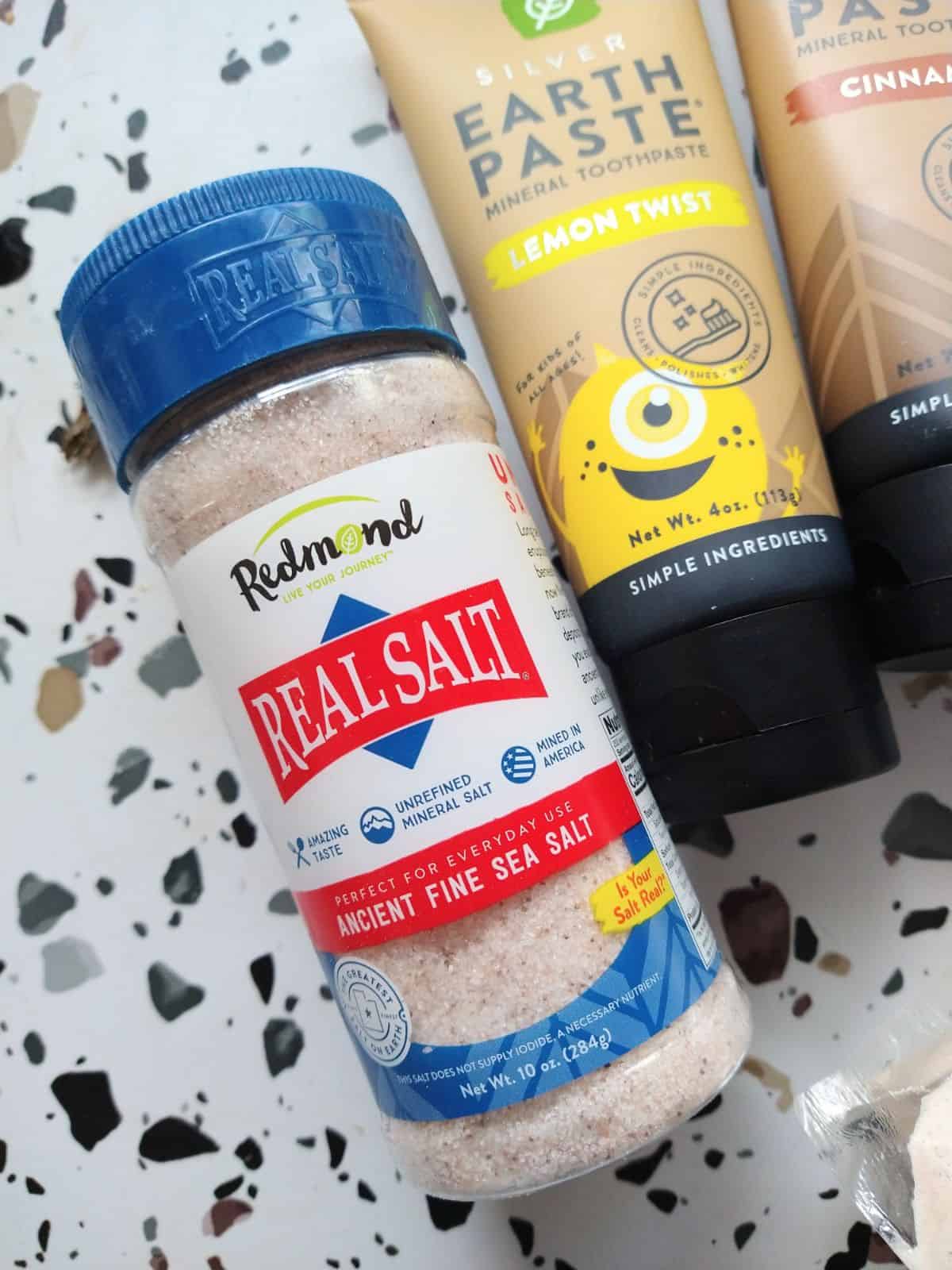
This post includes affiliate links. This means that, at no additional cost to you, I will earn a commission if you click through and make a purchase. These are products and services I recommend because I use or trust them. Cookies will be used to track the affiliate links you click.
On our podcast, Eat Shop Waste Not, I conducted an interview with Darryl from Redmond Real Salt.
Jump to:
🎧 Listen
You can listen to this podcast episode below or listen on any of these podcast players - Spotify, Apple Podcasts, Amazon Music, Google Podcasts. If you would prefer to read the text, you will find a transcript below.
📜 Start of Transcript
Here is the transcript from our interview with Darryl from Redmond Real Salt.
Eric: Hey, everybody. Welcome to a special episode of the Eat Shop Waste Not Podcast. I'm super excited today. I have Darryl here from Redmond Real Salt. I've been a huge fan of this company for well over a decade now I've been using their salt, for years and years and years. So that's one of, definitely one of my favorites and my family and friends know me, for using their salt. So they, they can tell you too, that I love their products here. So I'm so excited to Darryl today. So welcome to the podcast.
Darryl: Eric. Thanks for having me on today, delighted to have this conversation.
Eric: Yeah. Awesome. Yeah, it's great. Great to have you here.
So as we get into things here first, I wanna have you introduce yourself to tell me, tell me who you are , and what you kind of do for Redmond.
Darryl: Yeah. So my name's Darryl I grew up in the little town of Redmond where the salt comes from. In fact, my grandpa and his brother back in the 1950s discovered the salt. And so I have been around the salt and the deposit, um, pretty much my entire life. And so I, you know, people think salt's just salt, but I'm very passionate about salt and, uh, it's part of my family history.
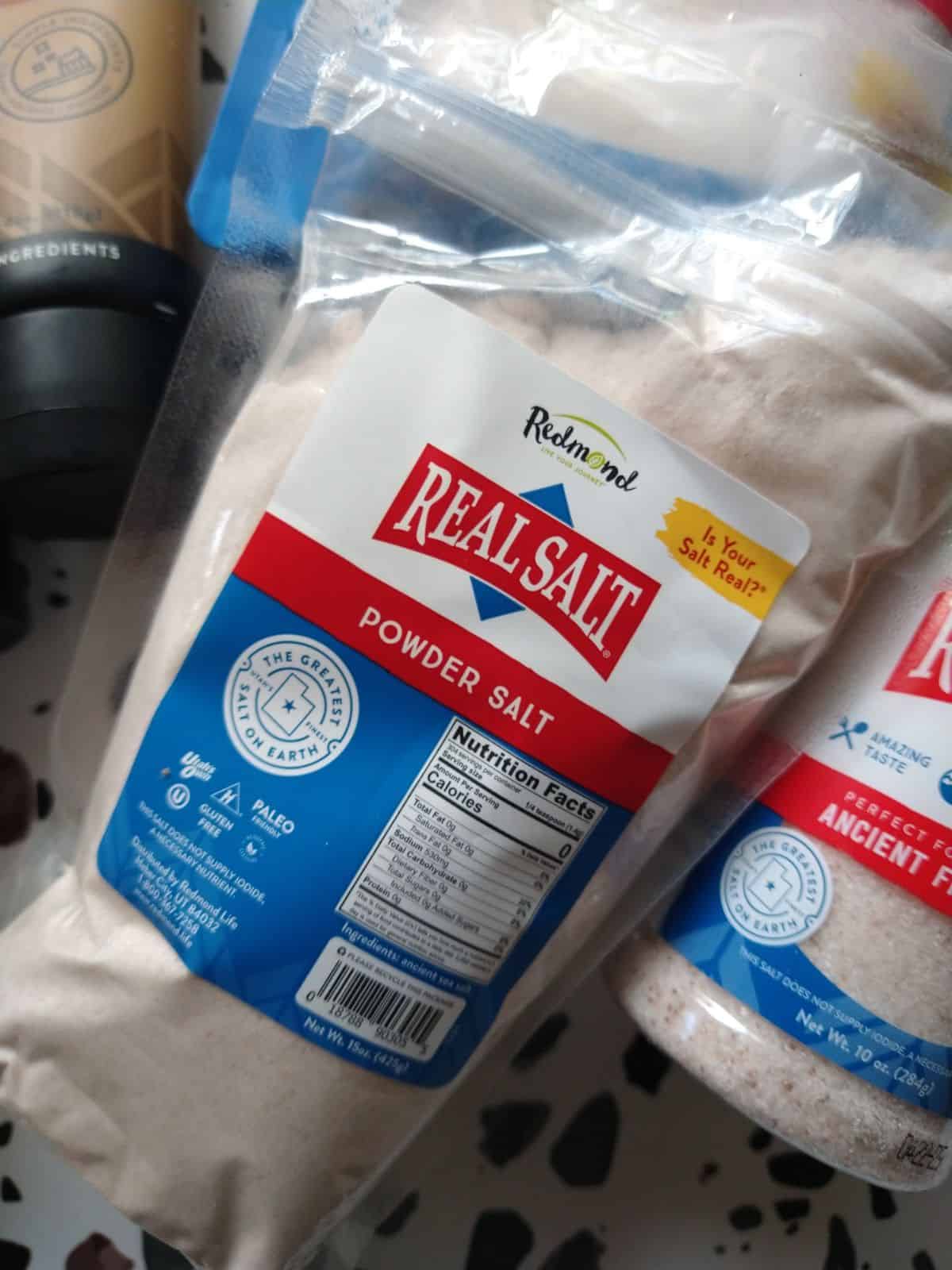
❓ What is Real Salt?
Eric: Oh, love that. Kind of raised on the stuff that that's great. Um, so for those who have not heard of Real Salt, um, know how would you, explain what Real Salt is?
Darryl: Well, we get that in question a lot and the, the real answer is it's opposed. Well, what is real salt?
Well, it's the opposite of the processed salt that many people are used to. So here in central Utah, under my grandfather's farm, there's an ancient seabed that was laid down geologists say, during the Jurassic era. This Jurassic aged sea bed happens to push up right underneath my grandfather's farm. And so the early pioneers discover the salt by watching the animals pick the soil that the salt was underneath.
And so in the 1950s, they bought a bulldozer and plowed the alfalfa and the corn out of the way and started mining salt. And so the difference in salt, there's great salts from around the world, but a lot of salt today is processed.
And so salt comes from a sea bed at some point. It might be a current ocean like the San Francisco bay, the Gulf of Mexico, the sea of Japan. It might be an ancient sea, or it might be a dead sea. Like the dead sea in Israel or the Great Salt Lake, which is a dead sea here in Utah, or it's from an ancient sea bed, a sea bed that was laid down long ago.
So that's the source of any of the salts. It's one of those three. And then salt companies will then take that basic product and they can do a lot of stuff to it. And so if you go to the grocery store, a lot of the salts today, if you look at the label, there's a lot of ingredients that are in the salt, where if we went back a hundred, 200, a thousand years ago, salt wouldn't have had an ingredient list.
It would've been just salt. One of the reasons, one of the big reasons that the nature of salt changed is salt is hydroscopic. So it means it sucks water outta the air. So most of the ingredients you see on a label in the grocery store are anti-caking agents, things that have been put with the salt to coat the crystal to stop its ability to attract moisture.
The challenge with that is salt's job in the body is to interact and regulate moisture, which is why every IV in the world is salt water. It's not distilled water. It's not tap water. It's not coffee. Although that might sound good in the morning, salt is supposed to regulate the intercellular and extracellular fluids.
So when you coat it with the chemical to stop its ability to interact with moisture, that's the first challenge. The second challenge is that many salt companies at the turn of the century notice. That seawater not only has sodium chloride, but it has potassium chloride, calcium chloride, magnesium chloride, these other complex electrolytes and complex chloride that are naturally occurring in seawater. Well salt companies today, they can take the seawater into a big evaporation pond, like over the San Francisco bay. If you've flown over the bay, you'll see these different ponds and they can use a different liner and they can leech off the calcium chloride. They can move the salt to the next pond and, and leech out the magnesium chloride, and then the potassium for it.
So through a series of evaporation ponds, they can pull out or leech off some of these other complex chloride, electrolites that our bodies need. So the biggest difference in, in a natural salt versus a processed salt is either the addition of chemicals or this process of refinement, where they can pull out some of these other electrolytes.
So back in the 1970s, When the family sat around. Initially we sold the salt mostly for cows because you know, local farm area and cows need salt. We sold it for the, the roads. It's a good ice melt. So it keeps the roads safe. In the 1970s, the health food movement took off. And so this nutritionist came through the area and wrote an article and said that the salt from this Utah deposit under my grandfather's farm was the tastiest and healthiest salt out there.
Of course, at the time we weren't selling it as food salt. More industrial and agricultural. And so the family sat around and said, what do we call this stuff? It's not processed salt. It's not fake salt. It's just real salt. And the brand was born. Long answer, but that's the reader's digest version.
Eric: Oh, love it. Love it.
Love it. That's a, yeah, that's a really awesome, um, story that you know, that you guys kind of started out, you know, something you were just throwing on the streets and giving to cows here and you realize, wait, this is a fantastic tasty product here! Someone pointed out, Hey, we should package this thing and sell to people who, would appreciate the taste more than the, cows probably do.
Darryl: And the cows still appreciate it. We still do sell it for Amish. You know, the Amish farmers. Yeah. Organic farmers. They love it because cows want healthy salt too.
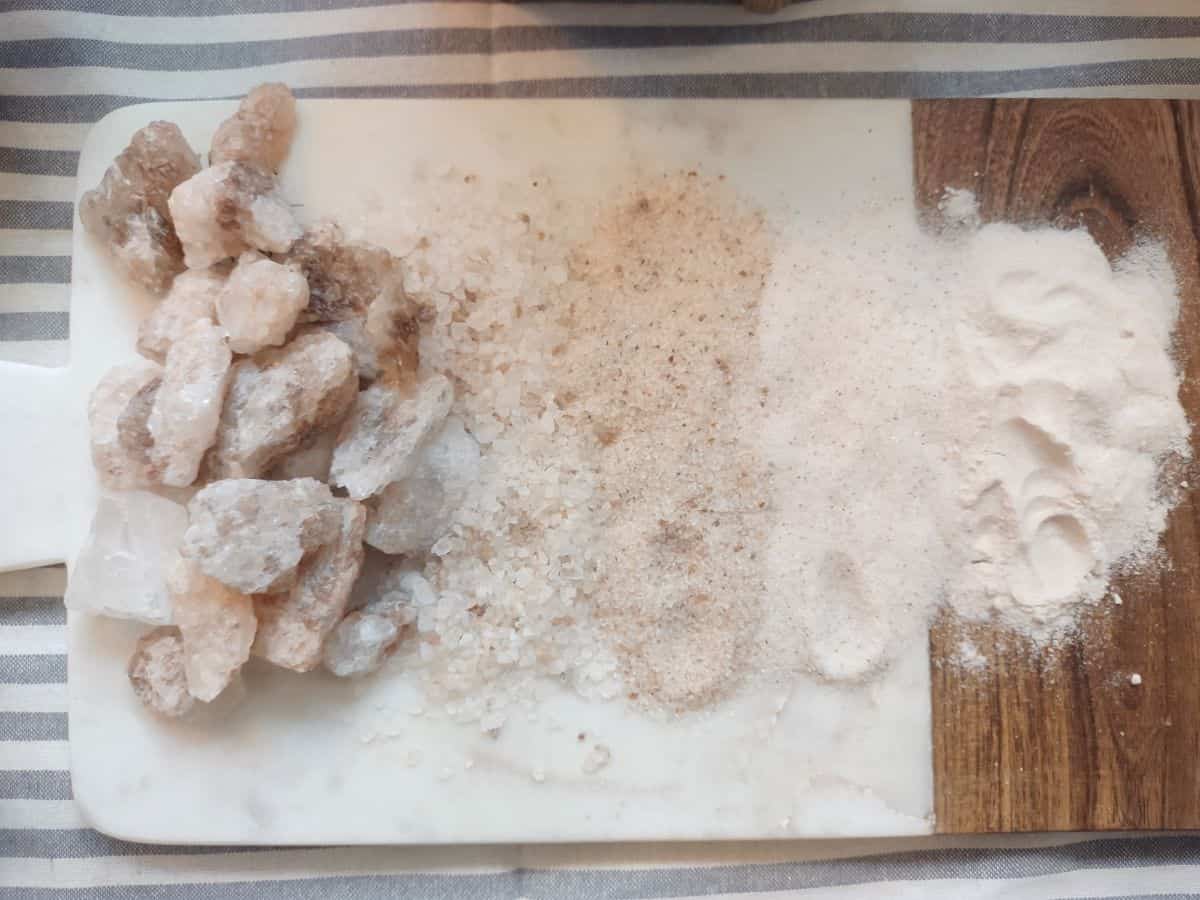
🧂 Redmond Real Salt vs. Table Salt
Eric: Exactly. There you go. Oh, that's a great story. So you look at a container of your ' salt and you'll see a list of all the different, like the trace element stuff here. So what else would you wanna tell people about that list of things that's, in the salt itself.
Darryl: So we like that, what we don't do to the salt is more important than what we actually do to the salt.
So we often get asked, so the salt ancient seabed under your grandfather's farm, what do you do to get it into the shaker? And the beauty of it is you could do the whole process with a hammer outta your toolbox and a screen outta your kitchen window. Because all we do is we take these salt crystals and we break 'em down, we crush it and then we screen it.
So we don't add anything to it. We don't take anything out. And so we leave the salt, just the way nature intended, which gives it a lot sweeter flavor.
If you were to take a, an apple, maybe you really like apples, they're rich in fiber. And if you were to take that apple and somehow chemically or magically you extract all of the fiber out of that apple, and then you could sell the fiber as a supplement to a, to a company, and then you could still sell the apples left over without the fiber. Why would you do that? Um, and why would you buy an apple if all the fiber had been extracted? Or taken orange, you know, or we know oranges are, are rich in vitamin C, but it's not pure ascorbic acid.
It's a complex that occurs in the orange. And so if you were, if you and I were in business together and we're. We're an orange farmers and we could somehow extract all of these ascorbic acid and vitamin C complex out of the orange and sell it to a vitamin company. And then we can still sell the orange at the supermarket as a, as an orange.
Then you and I were gonna make more money because we're gonna, that we're gonna sell the orange and we're gonna sell the parts of the orange that we took out of the orange. And salt is the same way. In some salt companies, you can take this naturally occurring sea water, pull out the calcium, magnesium potassium chloride, and then still sell the salt thats left over and, and salt companies do that.
Um, and I, I don't think it was malicious at the time. It was just, Hey, we can, you know, it makes economic sense. But I do think it changes the nature of the product. And, and that's why we like having all of the, that complete holistic, the salt way nature created it versus one thats been run through some, some different processes.
Eric: Yeah. And you can definitely tell, if you, take your salt and look at it and take a thing of just like the regular iodized, cheap table salt at the store. And like, you just look right at it. You can immediately tell that it's, it's different. You know, the store salt is a squeaky white color and yours has more of a looks more like, you know, different grains of sand and different colorations.
Darryl: I love the analogy. You said, you know, it looks like grains of sand, or it looks like a snowflake.
You know, if you look at things in nature, if you look at, uh, salt crystal in nature, it should look very unique. Every crystal should have its own unique, like a snowflake. If it's coming off, maybe the French gray salt that comes off the evaporative ponds before it's been processed. Every crystal looks beautifully unique. And if you look at, you know, Real Salt in the shaker or the Himalaya that comes out of the Pakistan range, those those are very unique. Um, and it's not this, you know, beautify manufactured look. That, that, uh, that we've come to associate with salt, but that's really not the way, not the way nature created salt.
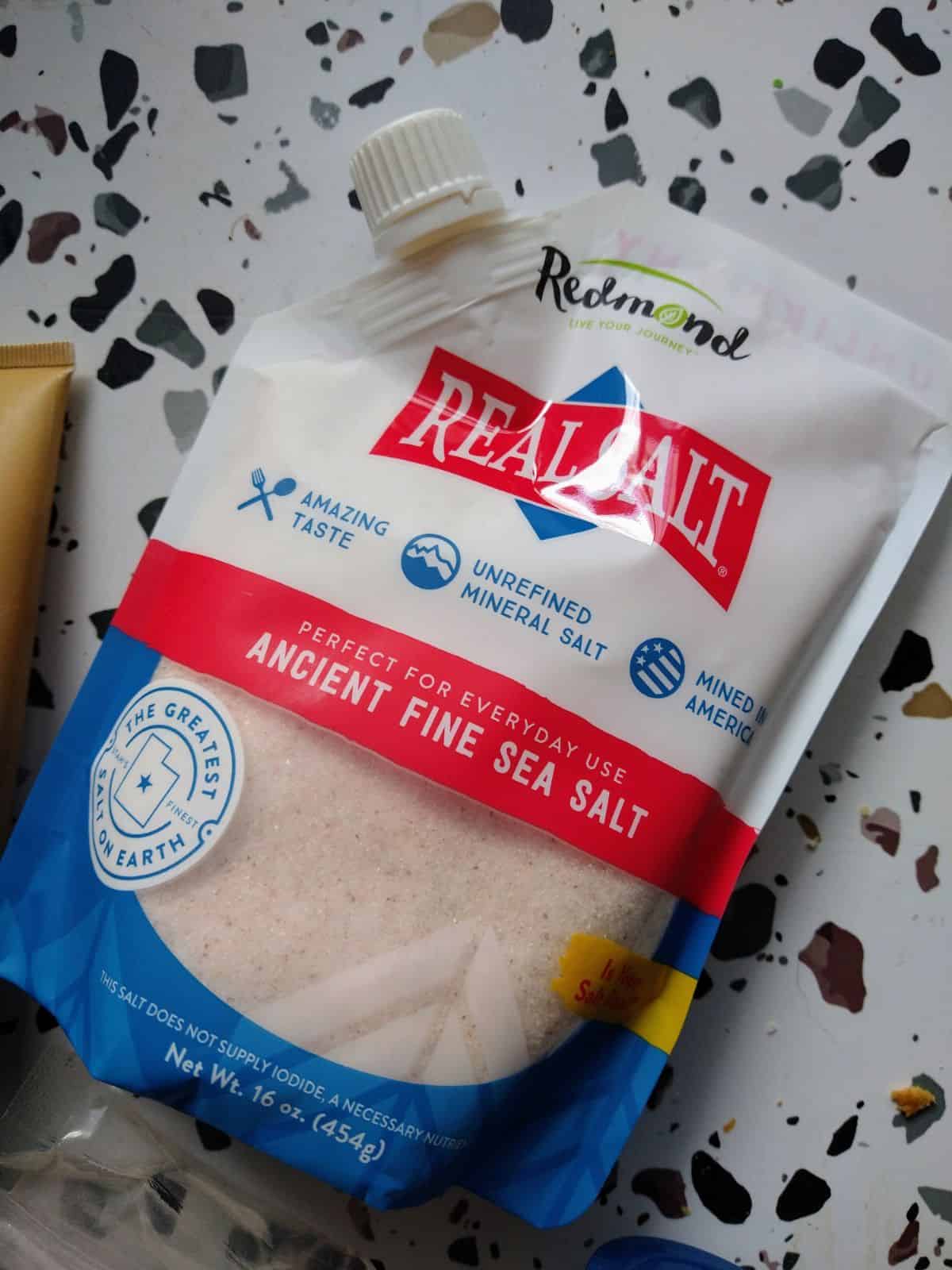
💲 Is More Expensive Salt Worth It?
Eric: Yes, definitely. That's so true. So we look at, you know, people go the store and they are shopping through the aisles and we see that, you know, we see your guys salt, and you're on a tight food budget. So you're looking okay. Well, the iodized regular salt is like dirt cheap.
And then, your salt is definitely at a higher price. So what do you say to people who who are, on a tight budget and need to decide what to buy here, like why they should spend the money for your salt overs, spend the money for the cheaper stuff.
Darryl: That's a great question. Um, in jest, I usually say, well, you could buy the cheaper stuff, but then you'd have to eat it. Um,
Eric: I agree, I cant stand the taste of it. If go to a restaurant and they have that there's the only option and I feel like I have to put it on there it doesn't even taste good. Like there's an off taste to it..
Darryl: But it, it's a, it's a very great question. You know, if you walk in and you see our 26 ounce pouch, which is probably the most cost effective that you see at a grocery store, you can buy a big 25 pound bag online and save a little more.
But the typical grocery store size is 26 ounces. And if you went into the grocery store at the bottom shelf in the salt aisle, you've got that canister, that's usually white or blue. It's also 26 ounces. that one might be a $1.50 and ours is $10. And so you think, wow, this is 10 times almost 10 times more expensive. How can I justify that? Well, it would be a great question other than if you look at how you use the product. So the first thing is kind of that, that orange analogy, right? If you went in, bought an orange and there's two oranges and you can buy this one that has zero, uh, vitamin C or this one that has natural vitamin C.
And even if this orange is $3 and this orange over here is 88 cents . You're probably gonna still buy the orange that, you know, has the vitamin C and nutritional value that nature created the orange for. And so salt, in my opinion would be the same way. Why would you buy a product that's either been demineralized or has stuff added to it, even if you can save a little.
And then when you look at that 26 ounce pouch for a, for a person that's living alone, that 26 ounce pouch, there's over 500 servings in a pouch. It's probably gonna last close to a year. If you used it three times a day, you know, maybe you're gonna get three quarters of a year out of it, but it's, it's gonna last a long time.
And at 10 bucks, that's about 2 cents, two and a half cents a day. Something like that. Um, using it for all of your meals versus, you know, something that's gonna be, you know, less than a penny a day. And so it is, it's more expensive, but in the grand scheme of things, you know, we're talking, you know, less than a penny a day, or, you know, a penny or two a day, So it's not really that big of a, an item in the food budget for something that's so essential for, for not only flavor, like you pointed out, but also the, the nutritional value of the, the extra complex chlorides, and then not having to buy something. That's that got a bunch of chemicals in it that actually changes the nature of why you should eat salt in the first place.
🛒Buy in Bulk and Save $$$
You can buy Real Salt in bulk and that will save you a good amount of money. You can order Real Salt by the bucket if you like and be stocked up for a VERY long time.
Eric: And that is a good point there. You know, we go to the grocery store and we see two different price things here. You might wanna say, oh, this is the way I could save money here.
But you gotta think about. You know, in reality over the whole, the course of a whole year, you're not really saving that, that much money it's, not like choosing between a filet minon and a cheap Chuck steak, you know, that's one meal.
This is like over. A long period of time. So it's definitely worth something to invest in. Our podcast we're all about trying to save money. And, but also be smart about it here and think like, Hey, this is an investment too, you know, buying that a better product here.
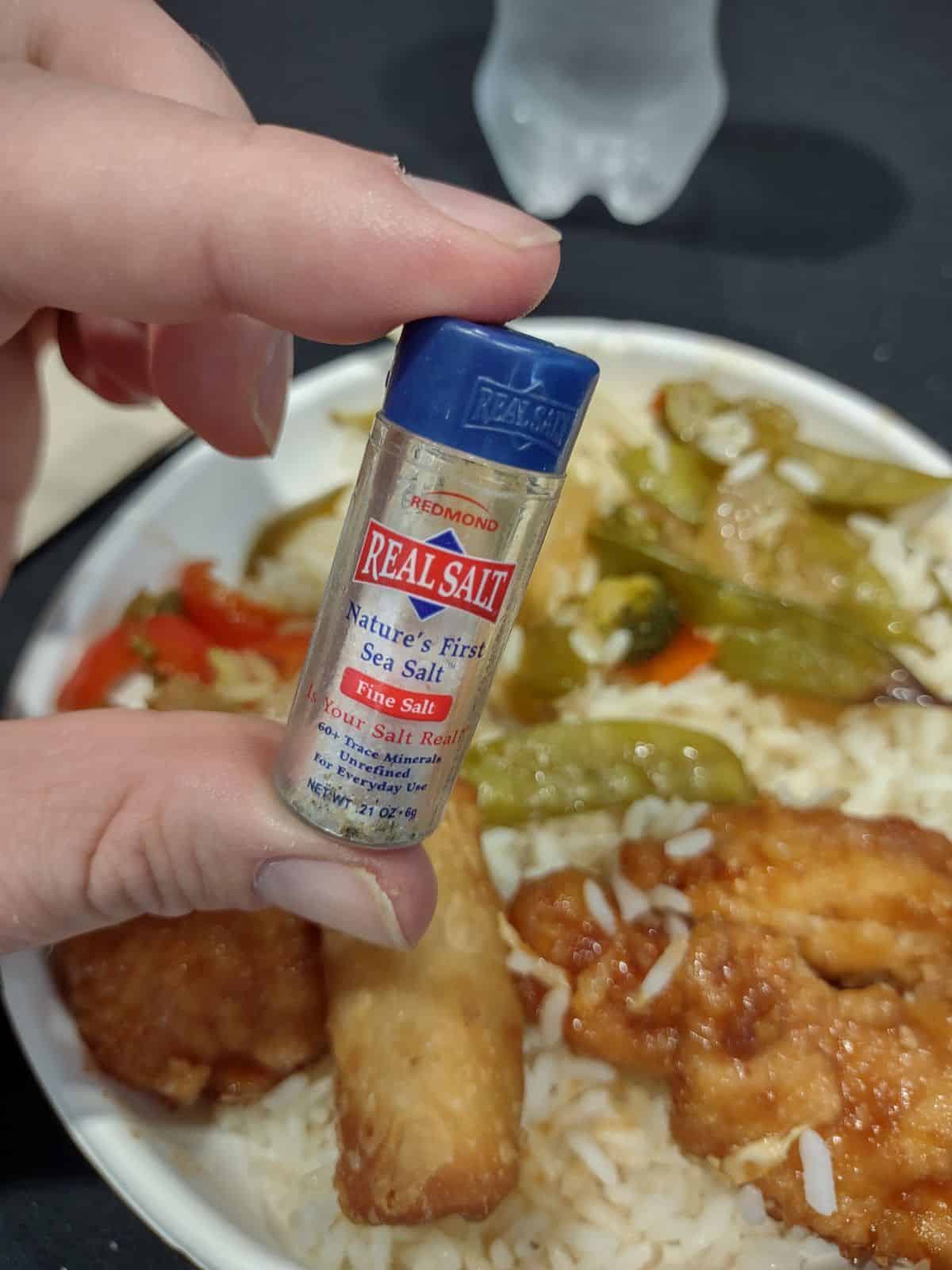
🥕 Salt Your Veggies
Your food's gonna taste better. For example, if you're having trouble getting your kids eat vegetables, which is pretty much every parent's story. You know, I feel like I, you know, we use real salt, putting the salt on the vegetables as opposed to some cheap iodized salt that doesn't taste good, is gonna make them more, wanna eat the vegetables.
Darryl: You know, Eric, that is a key. That is a key point. And I hadn't even thought of that because, you know, salt, the way salt is supposed to flavor food, our bodies, our bodies crave salt because we're saline solution in motion. And so we think we might be craving potato chips, but we're really craving is the salt that's on those.
And so with our families, you know, especially with kids, they don't want to eat vegetables. But they do love that salty flavor because our bodies have to have salt. But if you put a little bit of Real Salt in this hand and the iodized, you know, cheap, salt in this hand and you taste both of them, the iodized, that processed salt because of those chemicals and the lack of the minerals, it has a very sharp, bitter flavor, um, where the, where natural salt will have a very sweet flavor.
And so if you put a little bit of that sweet salt on. On a tomato or on broccoli or on asparagus or on brussel sprout that salt boosts, this sweet flavor in the vegetables that's usually masked by the chemical version of salt that we've come to associate with, with salt. But it shouldn't be that way. It wasn't that way for our ancestors.
Eric: Exactly. Thats a good point your salt does have that sweeter flavor to it and you bring out those sweeter flavors, in the vegetables. Vegetables, a lot of 'em naturally will have a bitterness to them. So especially for kids who don't like bitterness, you know, most kids don't wanna just go drink, dark roast coffee.
That's one of the things why they usually are against vegetables because of the bitter involved, but adding that salt to it and adding, you know, like a sweeter flavor., a lot of times I think in our society , instead of doing that, we're adding sugar to things to try to improve the flavor or try their counteract bitterness , when actually, using a good salt could kind of do that same.
Darryl: I love the coffee example. I'm not sure if you have ever tried that, but adding a few crystals of salt to your coffee actually will cut that bitterness. Um, and you notice it pretty strongly in coffee because you know, it is, is bitter and then you add salt to it. You think it would make it salty, but it doesn't, it actually cuts the bitterness and it will do the same thing with vegetables.
Eric: Yeah. Yeah. I've seen, Alton Brown from Food Network. One time did a grapefruit, he cut a grapefruit in half sprinkled, some salt on top of it, got a torch out, torched the top of it, and then just ate the grapefruit. And it was, it was just like putting sugar on it. Like he, it was not even needing to add any, sugar to counter out that bitterness.
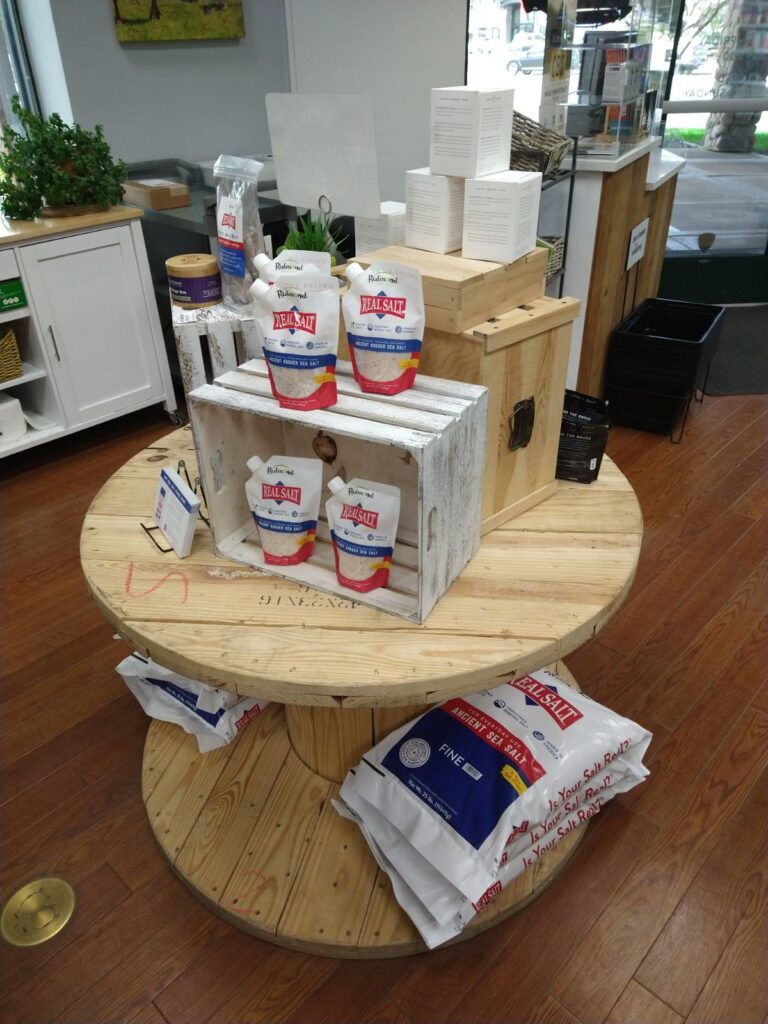
🧁 Salt vs Sugar
Darryl: And what's interesting, or I think kind of neat about that. Our bodies have to have salt to survive. Our bodies are saline solution in motion. And so we, you know, talk about going to the hospital. You're gonna get an IV. You're not gonna get an IV of sugar water. It's gonna be salt water. And so often in our culture today, we've come to associate sweet and sugar with everything where.
Where bitter and salt are the two things that are actually better for us. And that salt helps cut that bitter. And so it's, it's just interesting how far we've gotten away from healthy, bitter vegetables and bitter, you know, drinks and bitter herbs. And we've swapped it out with just sugar, sugar, sugar, sugar. Where that's not what our our bodies are designed on.
Eric: No, no, that's a really good point. That that's awesome. This has been a really fun conversation talking about, um, you know, all those different aspects of Real Salt. People don't realize that, you know, about salt how important it is, and for flavoring and nutrition and for all those things.
🗲 Electrolyte Products
Um, before we end this conversation today, I wanted to ask, um, so what are, what are some new things you guys may have coming out and, or things that are already out or upcoming that you would wanna. Share with our, our listeners today.
Darryl: Yeah. So one of the fun things we do have, uh, an electrolyte product, you know, a lot of people, you know, firefighters, um, you know, roofers, construction, guys, farmers, you know, anybody that's out in the sun all day is just sweating and losing a lot of salt.
And so we do have an electrolyte, uh, supplement. Now you can, you know, get it, put a little scoop in your bottle of water. It's kind of like a, a clean version of the sports drinks without all the artificial colors and stuff like that in there. And so if you like that, if you're, you know, I mountain bike, I hike a lot.
And so taking some of that with me, it's called Relight as in re electrolyte, um, it's available on the website, but what I like to tell people too, you know, that's, that's kind of an expensive way to, to take electrolytes. You know, you know, your, your podcast highlights, you know, ways to be more frugal. And so one of the things I wanted to leave your listeners with.
Instead of buying our electrolyte product or instead of going to the store and buying, uh, you know, the purple and the pink and the orange electrolytes for your kids at the soccer game, you can make your own at home. And the best way to do that is in my opinion, is take a quart of good clean water. Um, add a quarter teaspoon of Real Salt to it, and then a squeeze of lemon.
A little bit of honey, if you want some more sweetener to it, or some, maybe some syrup, something clean, clean sweetener like that, and you can make at home for pennies, um, the best sports drink your kids, or you will ever find.
🥤 Homemade Electrolyte Drink - Just one quart of clean water, a quarter teaspoon of good clean, Real Salt, and you can get the fine, you know, it's that 26 ounce pouch. One quarter teaspoon of that. Squeeze a lemon to give a little bit of that, uh, lemon, you know, fresh flavor, little bit of honey or some fig syrup, something like that. If you do need the sweetener in it, and it will be the best sports drink for pennies on the dollar,
If you don't wanna make your own. Yeah, you can buy ours. It's called Relight comes in sticks and it comes in capsules. But really, if you're on a budget and you wanna make things go, you can make a whole big, you know, two gallon thing for the kids down at the soccer game. You'll be the, the great parent on the block and you've done it for pennies versus buying, you know, six and 12 packs of the, of the commercial pink, hot blue sports drinks you find in the store.
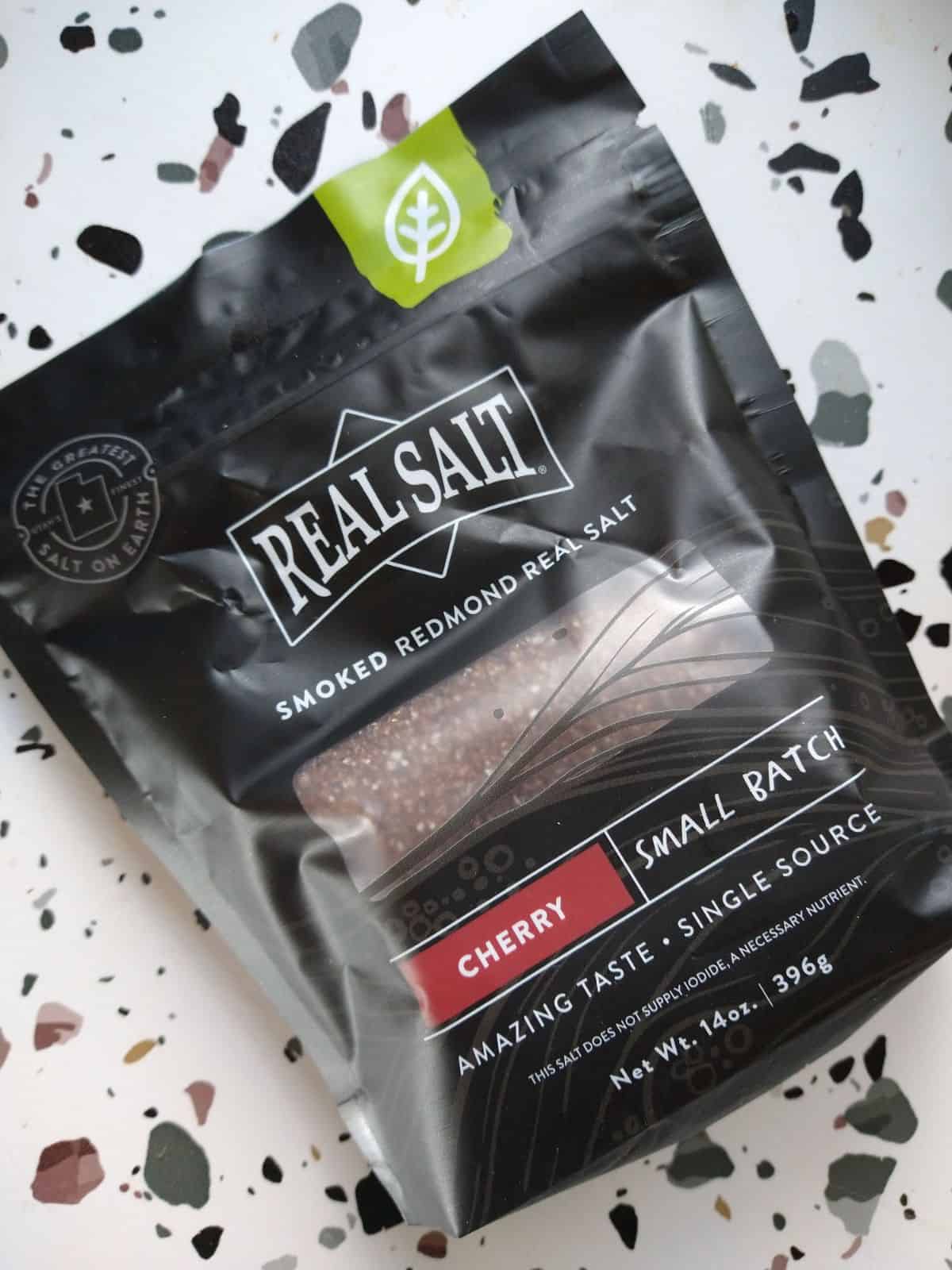
🔥 Smoked Salt
Eric: Oh, definitely. That is, that is really good too. Thanks for sharing that so much. And also say too, one of more, one of your more recent products that have come up, I've been loving is your smoked salts. Now, you guys have a line of different smoke salts out, and I originally, was kind of funny story.
I saw a review of them on, on your website and it was actually someone complaining about it saying" this smoke salt smells too smoky". So that was like, oh, I gotta buy this stuff now here, cuz it's real. And you do like, it, it, you know, it's, it's generally it's done the right way. A lot of lot of smoke products.
It's just, they're adding chemicals to it because it, it takes time to generally do things the right way. So I I've been absolutely loving that on, on everything, you know, throwing that in vegetables, get adding a little, not a little note of flavor on something just very simple. Um, really is really cool.
Darryl: So, you know, The nice thing about salt. I mentioned how it's hydroscopic so it absorbs moisture outta the air. So making a smoke salt in that humid smoke sucks right to that salt crystal incredibly well, which is why it can be so, so powerful and so strong.
You know, some other companies, you know, they're trying to get a flavor. So the add MSG or liquid smoke or different things on there to, to boost it. But with the good clean salt, it has that sweeter flavor. It tracks that smoke. Just like you'd smoke a brisket or whatever. Um, and that salt crystal gets really strong. And so a little goes a long way. And so yes, it is kind of expensive.
It, you know, you probably bought a four ounce shake or maybe a little, you know, little shake, ounce, pouch or something. Um, but you don't have to use a lot and you can put it on meat or vegetables and, uh, a little goes a long way. And it, if you like that smokey flavor, that's a fun product.
Eric: Yeah. Yeah. I went and bought it back in March. And I have a, I have on a pouch of it. I had my own separate shaker. So I put it in that shaker. I've refilled the shaker once. And it's um, when I'm recording this, it's now September. So, you know, something I spent like almost $15 for I'm still using now. So again, things go you sometimes you see at the, the like higher price tag at first, but you gotta think like, over a period of time, you know, This is gonna be a good deal, especially when a culture who loves to go to Starbucks and blow five, six bucks on a coffee, you know, three times a week, and then they that's gone already.
You know? So I always encourage people like, you know, even though some, sometimes things seem more expensive, you know, in the grand scheme of things, when you look at it like longevity, it may not be. So thank you so much for coming on today Darryl, it was a pleasure, chatting with you and can wait to my fans to hear this episode,
Darryl: Eric, thank you so much for having me on.
I look forward to meeting you in person at one of the future trade shows.
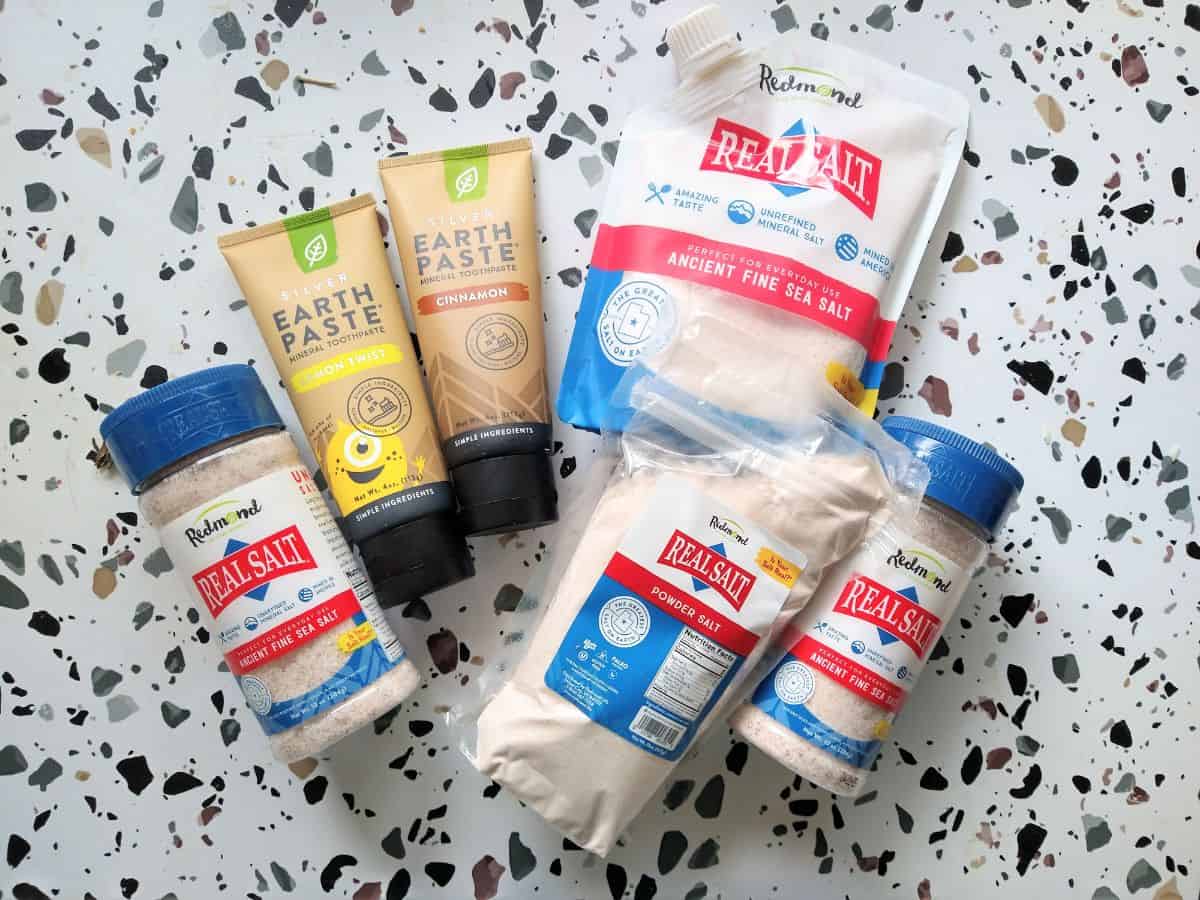
🛒 Shop
Want to get some of your own Real Salt. Here are some of the products you can buy.
- 26 Ounce Pouch (3 pack)
- 10 Ounce Shaker (2 pack)
- 16 Ounce Pouch
- Earth Paste Lemon Twist Toothpaste
- Smoked Salt Shaker Gift Set
🎙️ More Episodes
Thanks for checking out this interview. If you loved it and want to hear more, here are some other episodes I think would love as well.
- Interview with Burlap & Barrel Single Origin Spices (they appeared on Shark Tank!)
- How to Save $$$ on Groceries
- Best Grocery Stores in America
- What to Do with Bulk Meat Purchases from Costco
Have you ever bought Redmond Real Salt before? Leave a comment below and share with us what you think of it. Or if there was anything you learned from this interview.
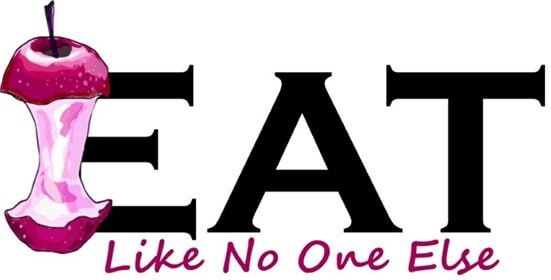

Vicki
This was a real interesting story on salt.might by some at the store next time